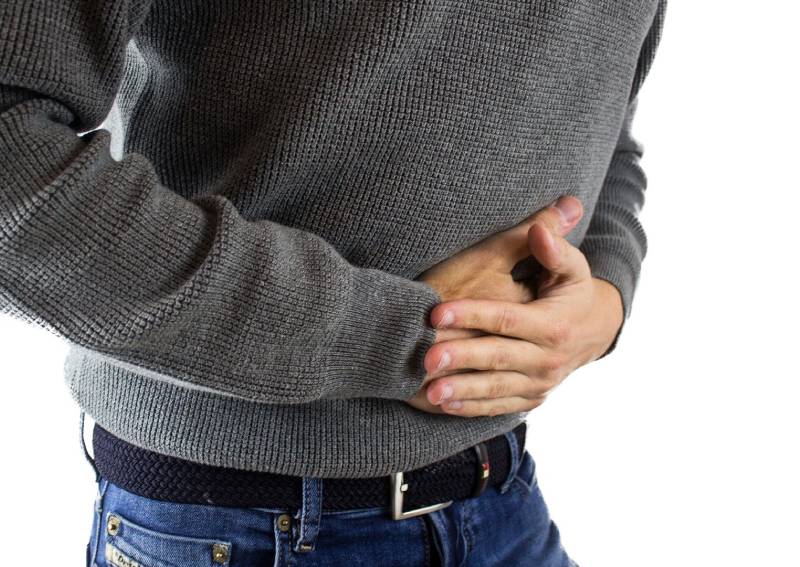Don't ignore that gut feeling: Your stomach pains might be a sign of something more serious


Feeling pain in your tummy? With any luck, it'll go away with proper hydration, a few days' rest and the right medication. But what if it doesn't?
It's easy to dismiss your stomach pains as the result of something you ate. However, if it is prolonged for an extended period, it might be something serious with longer lasting and more detrimental consequences.
In the case of abdominal pain, it could be a symptom of helicobacter pylori infection, otherwise known as a bacteria infection that can potentially lead to stomach ulcers, shares Dr Wang Yu Tien, a gastroenterologist at Gleneagles Hospital (GEH).
Stomach ulcers and gastroesophageal reflux disease and inflammatory bowel disease are some of the gut-related chronic diseases, and aside from causing inconvenience when unexpectedly flaring up, if left poorly controlled can result in more serious diseases, says Dr Wang.
For gastroesophageal reflux disease, it first appears as acid reflux, where the acid that digests our food does not stay in the stomach and flows up to the oesophagus. This causes a burning sensation in the chest area, also known as heartburn, and in some cases, you will feel a sensation of liquid coming back up the throat.
While acid reflux could be caused by having a large meal or lying down too soon after eating, if it happens more than twice a week, or causes inflammation of the oesophagus, It may be a case of gastroesophageal reflux disease.
When a sore or wound develops in the stomach and renders the protective mucus lining of the stomach ineffective, it is a stomach ulcer. Aside from bacterial infections, it can be caused by the frequent use of certain pain relief medications.
The pain caused by stomach ulcers occurs between the navel and breastbone, usually two to three hours after eating.
While it shares similarities to irritable bowel disease (IBS) such as diarrhoea, stomach cramps and abdominal pain, it is an inflammatory disease and is significantly more aggressive than IBS.
Those who suffer from it may face bowel obstruction, severe bleeding and perforation in the intestines.
The good news is that the above-mentioned conditions are treatable or can be controlled with the right medication when discovered early.
"Helicobacter pylori can be treated with a course of antibiotics and stomach acid reducing medication," says Dr Wang.
For gastroesophageal reflux disease and inflammatory bowel disease, they can usually be controlled with medication but severe cases may require surgery.
However, if the stomach-related diseases are left undetected and untreated, they can lead to stomach and oesophageal cancer. Hence for certain patients with helicobacter pylori and severe gastroesophageal reflux disease, cancer surveillance is recommended.

As with most diseases, early detection is always better, and for gut-related issues, prolonged stomach discomfort isn't the only sign that there may be something untoward going on in your stomach region, according to Dr Wang.
Other red flags include difficulty in swallowing, nausea and vomiting, as well as the presence of black stools.
Should any of these symptoms persist for a week or longer, you should consult with a doctor. Another symptom is unintentional weight loss of more than five per cent of your normal weight, says Dr Wang.
To properly diagnose the disease, doctors will need to perform a gastroscopy. This is a specialised examination that looks inside your oesophagus, stomach and the front section of your small intestine through an endoscope — a long, thin flexible tube with a video camera attached to it.
The procedure takes 10 to 15 mins and fasting for six hours prior is required. For those who are afraid of discomfort, sedation can be given, and while you may feel an uncomfortable sensation in your throat and stomach immediately after the procedure, it usually goes away by the next day.
While there are cases of serious complications from gastroscopy such as bleeding, infection or puncturing of the intestinal wall, these are uncommon. At GEH, only the latest state-of-the-art facilities are used and all procedures are carried out by senior specialists with years of experience, says Dr Wang.
And if you may be worried due to the coronavirus pandemic, patients can rest assured that the hospital has implemented safety protocols to safeguard the health of its patients, visitors and staff.
If you or your family members require treatment for a medical condition, make an appointment with a specialist or visit GEH’s 24-hour clinics.
This article is brought to you in partnership with Parkway Pantai.
kailun@asiaone.com